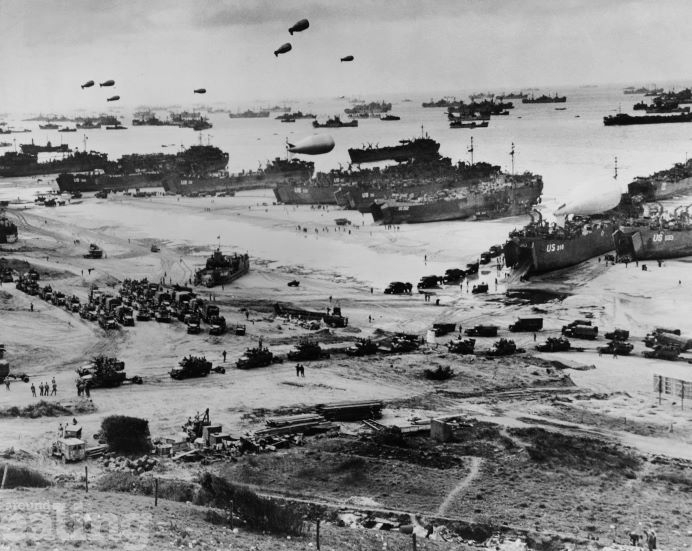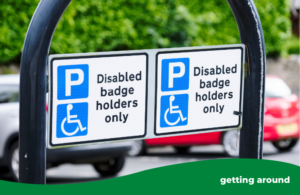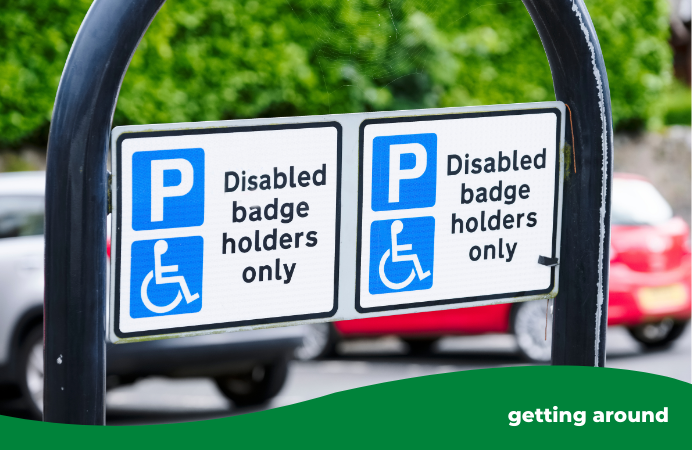Today marks the 80th anniversary of D-Day. The allied invasion of Normandy on Tuesday 6 June 1944 was one of the turning points of the Second World War.
It left an indelible mark on the whole country, and our borough and its people and businesses were no different.
D-Day saw one of the most ambitious amphibious landings on to a hostile shore that has ever taken place in history. It was a calculated gamble and had been much prepared in advance as well as being shrouded in secrecy.

On the morning of D-Day itself, a mighty armada of British, Canadian and US troops sailed across the English Channel. They landed on 5 different beaches in Normandy. There were also troops parachuted in behind the enemy front lines to seize important bridges.
Air cover was provided for the ships and naval vessels also protected the troop ships as they crossed. And there was a huge back-up operation to supply food, fuel and ammunition.
Ealing’s local newspaper reported many early shoppers first learned the news from a notice hung outside a church reading ‘Invasion – special prayers at 11am’. Some left their shopping and went inside. Shops reported less business than usual as people stayed at home to listen to the news and there was a late rush to buy newspapers. In factories, the news was passed on to the staff and they were given updates during the day.
In Acton it was a similar story, where there were: ‘Serious faced people listening outside the wireless shops in Acton High Street, office staffs frankly abandoning work, grouped round the set for news bulletins.’
Churches reported a rise in their congregations at special evening services. One at Holy Cross Church in Greenford ended with the Last Post being played by a Boys’ Brigade bugler. At St Thomas’s Church in Hanwell, the vicar installed a wireless radio to play the King’s speech at the end of the service.
Elsewhere, at local cinemas in Northfields, Southall and Walpole, the evening film was interrupted to relay the King’s speech at 9pm.
In the days to come, people were encouraged to donate a pint of blood in order to save the lives of men injured in battle. Around 1,000 workers of Hoover’s Factory in Perivale did so.
On the frontline on D-Day
Of course, there were local people involved in the fighting itself.
Flight Lieutenant Frank Clifford of Arlington Road in West Ealing, piloting a Mosquito fighter plane, shot down a Heinkel over the Normandy coast.
Several local men died in the landings and immediate firefights: Corporal Charles Patrick Ketteridge, of the Royal Armoured Corps, who had lived at 27 Leonard Road, Southall, and was just 21; Royal Marine Gerald Pike, a 19-year-old of Noel Road, Acton, who was killed on a landing craft as it approached one of the Normandy beaches when it was hit by a shell; Private Herbert Taylor of the Parachute Regiment, of Clarence Street, Southall, was killed in Normandy; as was Christopher Barwick of Ash Grove, Ealing, who was described by his commanding officer as ‘The best NCO in my company. He was a fine example to all his men’.
Lieutenant Commander Gerald Wreford of Tudor Way, Gunnersbury, was injured when the tank landing craft he was on was damaged by a mortar shell. Lance Corporal Bryn Williams, a Northolt man, was wounded when a German Panther tank fired on him and others. The men had fired 4 anti-tank rockets, destroying 2 of the enemy tanks. It was said of him: ‘He carried on despite the wound, at one time himself loading and firing.’
Local wartime innovators
AEC, in Southall, used to build London’s buses in the 1930s but, at the outset of the war in 1939, it switched to producing equipment for the military.
One of its important war-time innovations was the flail mine, a device that was installed at the front of tanks in order that they could sweep up otherwise deadly mines.
It was trialled with more than one tank. By the time it was being attached to the British Sherman tanks, its effectiveness at clearing a path through minefields had been perfected.
They proved critical in clearing the Germans’ extensive network of mines in northern France. Without these flail tanks, the allied advance would have been far slower.
Another important vehicle produced at AEC was the Matador gun tractor, which hauled guns, fuel tanks and trailers to where they were needed. A total of 8,612 were produced by AEC during the war.
Then there were the AEC diesel electric sets, which powered Mulberry artificial ports that were towed across the Channel to the Normandy beaches. By 26 June, these ports had helped a million troops to land, and it is estimated that they saved between 100-150,000 lives.
This article was taken from a D-Day talk given locally by borough archivist Dr Jonathan Oates.
Poppy campaign
The Royal British Legion is looking for volunteers in the borough to help with this year’s Poppy Appeal.
You could join the UK’s leading Armed Forces charity as a Poppy Appeal organiser in your local area and help raise the vital funds needed.
You don’t need to be an RBL member or have links to the Armed Forces, you just need to be passionate about its cause and help to ensure the unique contribution of our service men and women is never forgotten.





